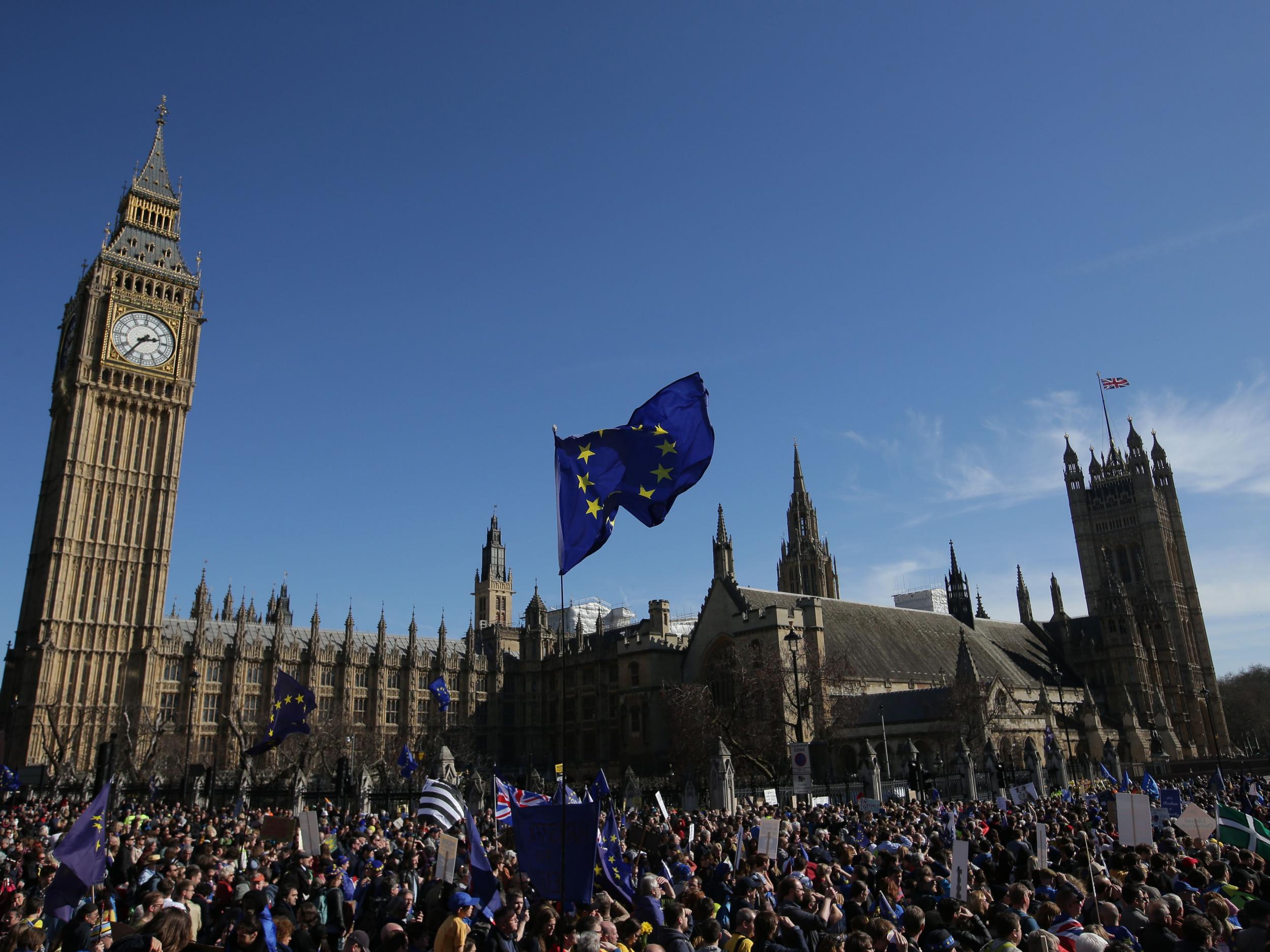With EU deportations skyrocketing, it's time to face the truth about immigration
The EU never had unrestricted, unconditional free movement of people. There have always been rules about finding work and not being a threat to public policy, and some 5,000 EU citizens are denied entry or deported on this basis every year

There is nothing wrong with Tony Blair’s latest intervention in the Brexit debate – except that it is being said by Tony Blair. For Mr Blair’s vague ambition of constructing some anti-Brexit alliance is made much less likely by his efforts to place himself in some sort of role in it. His opponents point to his own record on migration. Ironically, though, he is most toxic within his own party for everything from academy schools to Iraq. Right or wrong, that is a fact of political life, and Mr Blair cannot ignore it.
It is a pity. He is right to see leaving the European Union as a sledgehammer to crack a relatively smaller and more manageable problem about the British electorate’s concerns about migration. The vast scale of the changes that will befall the UK in about a year and a half are only just crystallising in the public mind.
Many, on either side of the debate, find the most fearful projections difficult to believe – and yet logically and legally if there is no deal and a hard Brexit, then there will be massively damaging consequences for trade, investment, jobs, travel, family life and the political future of Scotland and Northern Ireland. Any one of those would be enough to preoccupy a government in normal times: every one of those issues coming all at once towards a weak Prime Minister leading a lacklustre Cabinet and divided party with no majority in Parliament is indeed the stuff of nightmares. It may yet push public opinion against Brexit. Mr Blair, once at the head of a landslide majority government with carte blanche power, was magnanimous not to point that out.
The suggestions he and his grandiloquently named Institute for Global Change make are perfectly sensible. Indeed in their ambition of restricting free movement of labour, they are conceptually similar to the proposals that David Cameron emerged from his renegotiation with the EU with. Both the Blair and the Cameron proposals are not, in truth, so very different from the detail of existing EU rules – for the idea of unfettered free movement of people was always a pernicious myth.
The EU never had unrestricted, unconditional free movement of people. There have always been rules about finding work and not being a threat to public policy, and some 5,000 EU citizens are denied entry or deported on this basis every year. Other EU countries have stricter laws on registration and of course ID cards, a Blair-era project that never won support. Refugees from Syria and elsewhere under the Dublin Convention do not have an automatic right to settle in Britain, and the Le Touquet agreement with France under EU rules actually protects Britain’s borders and places a great burden on the French Channel ports and Mediterranean EU members Italy, Malta and Greece.
EU citizens are desperately needed to work in the NHS, in hotels and bars, on farms and in factories, as plumbers and electricians, on building sites and as Premier League footballers and managers. Worryingly, numbers of deportations of EU citizens have skyrocketed since the Brexit vote, with a 26 per cent jump in removals in the first three months of 2017 as compared to a year earlier. But without EU workers, many British businesses will suffer or fail. It is as simple as that. Besides, Brussels never told the British how many people could arrive from the rest of the world, who make up the majority of net migration and seem to feature in a lot of Brexit-related immigration debates despite having nothing to do with the EU at all.
Some of these truths were visible in the referendum campaign, but it was a defensive affair on the part of Leave campaigners. The argument was lost. Yet Mr Blair is right that it’s not over till it’s over. Right now, as Ken Clarke says, there seems not much appetite to revisit the question, but that can change and, as the talks fail, Parliament will have to “take control” of the country’s destiny.
There is not and never has been a majority for Brexit in the House of Commons, and only a narrow majority for it in principle among the public. Jeremy Corbyn’s Labour Party is moving rapidly and rather unexpectedly against Brexit: they may yet embrace a second referendum. The general election was no mandate for Brexit either. Thus, the argument is far from over, the situation is fluid, and Parliament and people have a right to vote on the terms of Brexit, and to decide if they want to take that sledgehammer to Britain’s future or not.

Join our commenting forum
Join thought-provoking conversations, follow other Independent readers and see their replies